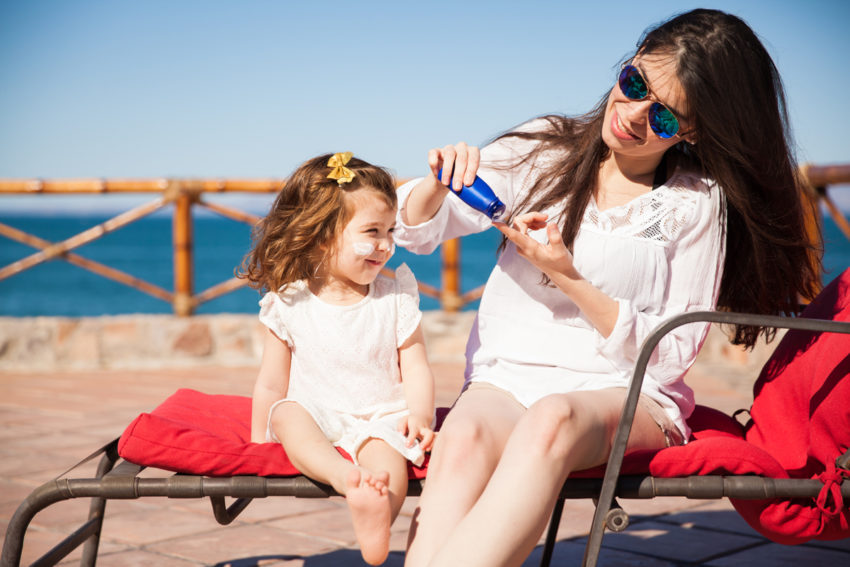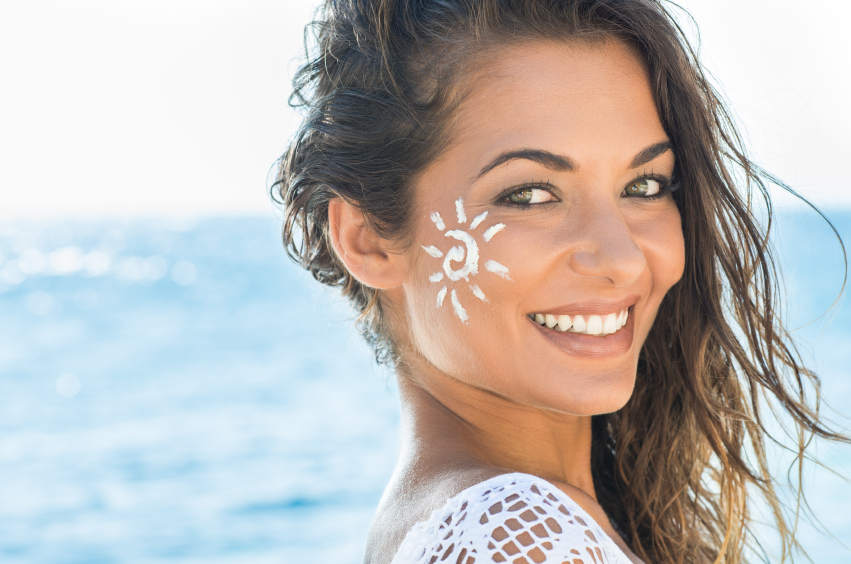
Share On Social!
As temperatures blaze this summer, don’t forget the water and the sunscreen!
Latinos, who face a shockingly high risk of skin cancer, should wear head covering, sunglasses, and sunscreen to protect against the sun.
 What if you can’t afford find or afford sunscreen, though?
What if you can’t afford find or afford sunscreen, though?
A cool new initiative in New York City (28.9% Latino population) offers free sunscreen dispensers in all five city boroughs, CityLab reports.
“The mix of raising awareness about the problem of melanoma and providing a free preventive measure [sunscreen] is an easy step towards reducing skin cancer,” said Bright Guard CEO and Co-Founder Ryan Warren told CityLab.
The Myth of Latinos and No Skin Cancer
It is true that skin damage from the sun, which can lead to skin cancer, affects those with lighter skin color more.
But it is a myth that Latinos do not get skin cancer.
Latinos do have lower rates of melanoma compared to whites, but their rates also have risen over 20% in the past 20 years, the Skin Cancer Foundation reports.
Latinos also are also less likely to be diagnosed early.
The rate of death due to skin cancer is higher among Latino males than among Latinas or among their white counterparts.
Overcoming Barriers to Skin Care
The cost of “quality” sunscreen (ranging from $10-$60) is a significant barrier to dealing with the problem of melanoma.
In New York, the free sunscreen dispensers were a product of a collaboration between the company Bright Guard and the nonprofit Impact Melanoma group.
“If we can think of [melanoma] as something to actively avoid, we will be able to save so much money,” said Deb Girard, Executive Director of Impact Melanoma.
According to data from the CityLab story, skin cancer treatment costs over $8.1 billion in the United States each year; $3.3 billion is just for the treatment of melanoma.
To date, the partnership has installed 80 free dispensers that are filled with SPF 30 sunscreen lotion at locations throughout the city.
Starting in August 2017, dispensers will now be installed along beachfronts in the area.
Research from the University of Colorado has determined that instances of melanoma have declined in recent years. The report looked at reported skin cancer deaths in 48 states between 2003 and 2013.
States in the Northeast reported significant decreases in death rates; public health campaigns in major cities “played a likely role in this region’s success,” the report said.
“It has to be a combination of awareness and prevention to tackle skin cancer, as many people don’t understand how not protecting your skin can be dangerous,” said Warren.
Explore More:
Healthcare AccessBy The Numbers
25.1
percent
of Latinos remain without health insurance coverage



